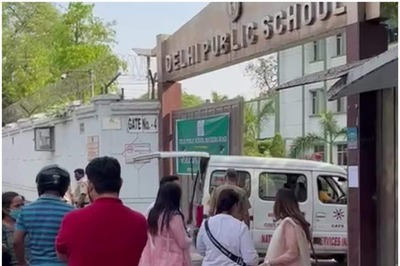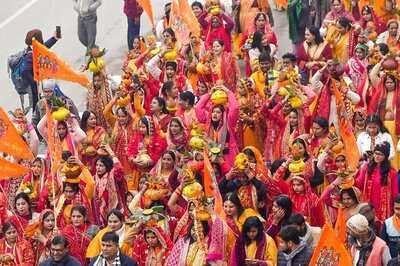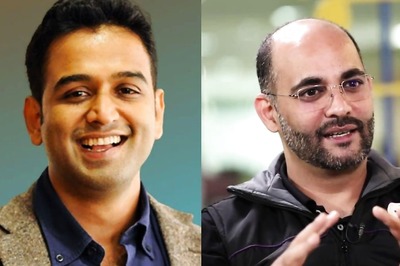
views
New Delhi: Six years have gone by but the stigma of the infamous Batla House encounter still haunts residents of the largely Muslim-dominated locality in the heart of South Delhi, who also have been grappling with a range of issues like lack of proper roads, water supply and other necessities.
The residents feel politicians have not paid any heed to their repeated demands for basic infrastructure as they are more interested in "gaining political mileage" rather than addressing their grievances.
The encounter had taken place at flat no. L-18, Batla House in Jamia Nagar locality on September 19, 2008, six days after serial bomb blasts rocked Delhi, killing 26 people and injuring 133 others.
Of the five flat occupants, Atif Ameen and Mohd Sajid were killed during the encounter. Highly-decorated Delhi Police Inspector Mohan Chand Sharma succumbed to the bullet injuries sustained during the encounter while head constable Balwant was injured.
Congress leader Digvijay Singh had dubbed the encounter as "fake", triggering a major controversy and a war of words between BJP and Congress.
"It has been six years but still we face harassment by police. We still face the ghost of the encounter. Early this year police had held two youths of an adjoining area here," said Dinesh Verma, a student of Jamia Millia Islamia, who lives in the area.
Another resident Pravin claimed that the percentage of utilisation of the MPLAD (Member of Parliament Local Area Development) was among the lowest in the area.
The encounter had led to arrest of a number of local people, leading to widespread allegations and protests by a number of civil society groups, activists especially teachers and students of the university.
Talking about the developmental issues Babu Singh Sejwal said water supply in the area has been very poor and despite "repeated" pleas to the authorities, nothing has changed.
"The roads are in bad shape. Innumerable shops and small eateries have eaten up major portion of the roads," Sejwal said.
The area mostly has small retail shops and small scale industrial units. A number of businessmen claimed that there was very little scope for investment in their businesses in the area.
"The area is a residential one. You will mostly find small eateries, general stores and goods of daily use here. The area doesn't even have big brand eateries or shops or even ATMs or banks," a trader said.
He added, "People here live in a kind of fear even today. Largely the area population is of university students which is good in a way, but these youths are always on the radars of police. Which has increased the raids and patrolling here causing discomfort to locals. Which is one reason why people are dubious towards being liberal."
Kamakshi, also a student of the Jamia Millia university, said: "Politicians come here only ahead of elections. They are not bothered about lack of basic infrastructure in the area."



















Comments
0 comment